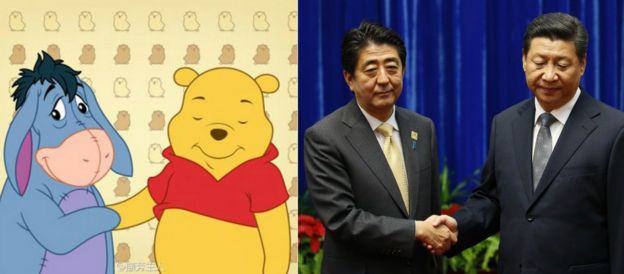Here’s that article in The Atlantic I mentioned in my new Taki’s column on how free speech is most valuable when dealing with a novel problem:
Internet Speech Will Never Go Back to Normal
In the debate over freedom versus control of the global network, China was largely correct, and the U.S. was wrong.
APRIL 25, 2020
by Jack Goldsmith, Harvard Law School professor,
Here’s Goldsmith’s recent book about how it’s totally not true that his stepfather murdered Jimmy Hoffa.
and Andrew Keane Woods, Professor of Law at the University of Arizona College of Law
Covid-19 has emboldened American tech platforms to emerge from their defensive crouch. Before the pandemic, they were targets of public outrage over life under their dominion. Today, the platforms are proudly collaborating with one another, and following government guidance, to censor harmful information related to the coronavirus. And they are using their prodigious data-collection capacities, in coordination with federal and state governments, to improve contact tracing, quarantine enforcement, and other health measures. …
But the “extraordinary” measures we are seeing are not all that extraordinary. … As surprising as it may sound, digital surveillance and speech control in the United States already show many similarities to what one finds in authoritarian states such as China. Constitutional and cultural differences mean that the private sector, rather than the federal and state governments, currently takes the lead in these practices, which further values and address threats different from those in China. But the trend toward greater surveillance and speech control here, and toward the growing involvement of government, is undeniable and likely inexorable.
In the great debate of the past two decades about freedom versus control of the network, China was largely right and the United States was largely wrong. Significant monitoring and speech control are inevitable components of a mature and flourishing internet, and governments must play a large role in these practices to ensure that the internet is compatible with a society’s norms and values.
Beginning in the 1990s, the U.S. government and powerful young tech firms began promoting nonregulation and American-style freedom of speech as essential features of the internet. …
China quickly became worried about unregulated digital speech—both as a threat to the Communist Party’s control and to the domestic social order more generally. It began building ever more powerful mechanisms of surveillance and control to meet these threats. …
In these and so many other ways, the public internet in its first two decades seemed good for open societies and bad for closed ones. But this conventional wisdom turned out to be mostly backwards. China and other authoritarian states became adept at reverse engineering internet architecture to enhance official control over digital networks in their countries and thus over their populations. And in recent years, the American public has grown fearful of ubiquitous digital monitoring and has been reeling from the disruptive social effects of digital networks.
Two events were wake-up calls. The first was Edward Snowden’s revelations in 2013 about the astonishing extent of secret U.S. government monitoring of digital networks at home and abroad. The U.S. government’s domestic surveillance is legally constrained, especially compared with what authoritarian states do. But this is much less true of private actors. Snowden’s documents gave us a glimpse of the scale of surveillance of our lives by U.S. tech platforms, and made plain how the government accessed privately collected data to serve its national-security needs.
The second wake-up call was Russia’s interference in the 2016 election. As Barack Obama noted, the most consequential misinformation campaign in modern history was “not particularly sophisticated—this was not some elaborate, complicated espionage scheme.” Russia used a simple phishing attack and a blunt and relatively limited social-media strategy to disrupt the legitimacy of the 2016 election and wreak still-ongoing havoc on the American political system. The episode showed how easily a foreign adversary could exploit the United States’ deep reliance on relatively unregulated digital networks. It also highlighted how legal limitations grounded in the First Amendment (freedom of speech and press) and the Fourth Amendment (privacy) make it hard for the U.S. government to identify, prevent, and respond to malicious cyber operations from abroad.
These constitutional limits help explain why, since the Russian electoral interference, digital platforms have taken the lead in combatting all manner of unwanted speech on their networks—and, if anything, have increased their surveillance of our lives. But the government has been in the shadows of these developments, nudging them along and exploiting them when it can.
Of course, I’m a dangerous extremist who holds wacko views like that the First Amendment is good, especially when the authorities don’t yet know the right answers to an unprecedented problem. Instead, you should listen to sensible sources like The Atlantic telling you that Xi Jinping’s views on Winnie the Pooh is Who We Are.
![]()
[Comment at Unz.com]














